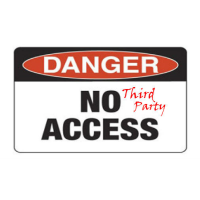Third Parties Lose Court Appeal of “Top-Two” and Their Place on California Ballots

Everybody loves a list, but when it comes to elections, Californians like to keep their candidate lists short—very short.
Proposition 14, the Top-Two Primaries Act passed by voters in 2010, does just that by limiting electoral candidates on the final ballot to the two biggest vote-getters in the primary. The system, despite what other virtues it may have, effectively keeps third parties off the final ballot.
Third parties suspect that it is not an unintended consequence of a law ostensibly aimed at increasing voter turnout, reducing ideological zealotry and avoiding legislative gridlock. They also think it violates the U.S. Constitution’s guarantee of equal protection of the laws.
So representatives of the Libertarian, Green, and Peace and Freedom parties sued the California Secretary of State in 2011—and lost in Superior Court. Last week, a three-judge panel of the California Court of Appeal upheld the ruling. States have long had a right to set requirements for making the general election ballot, and California previously used petition signatures and previous electoral success. Not anymore.
Judge Sandra Margulies, wrote for the court that the new two-two system might have a “modest” effect on the “expressive rights” of third parties, but that wasn’t a big deal because, “It is important to recognize that plaintiffs are not excluded from the electoral process altogether.”
Plaintiffs disagreed. The said it caused a substantial limitation on their participation because “the California general election ballot is the moment of peak participation by voters, media, and the candidates themselves.” You have to be seen if you want to get elected, now or in the future.
Some supporters of Top-Two say the only thing Proposition 14 changed for third-party candidates was they lose in June instead of November. That would be pretty accurate if the only measure of change was electoral victory.
But third parties in the U.S. system of government, unlike in many other nations, do not get a proportional share of power based on their showing at the ballot box. Electability is not necessarily the measure of importance. Historically, they have had influence in the electoral process through broad public dissemination of their ideas, influence on the nature of political debate and an effect on other candidates' positions.
The appellate court was not unaware of the smaller stage primary contestants occupy. The ruling noted that the 2012 primary attendance of 5.3 million was less than half the 13.2 million who voted in the general election. The court also recognized plaintiff’s argument that Prop. 14 was explicitly designed to stifle their voice by citing the ballot argument, mailed to voters, which said, “Proposition 14 will help elect more practical office-holders who are more open to compromise.”
The appellate court rejected those arguments. Judge Margulies said the plaintiffs raised the argument about the law’s “improper purpose” of excluding them way too late in the judicial process, but it didn’t matter. The court would have rejected it anyway because, “The change in the electoral system may have had the effect of diminishing the minor parties’ presence on the general election ballot, but there is nothing to suggest this was an objective of the promoters and the voters.”
So, yes, third parties are being burdened. But, no, it wasn’t done on purpose. But most important, the Prop. 14 argument made to voters—“permitting independent voters to participate in the process of narrowing candidates for the general election” —alone outweighed keeping them out of the general election.
The “independent” voters cited by the court, 20.2% of the California electorate in 2010, were those who registered with no party preference. But many of those independents are really “closet partisans” who “consistently lean towards one party or another,” according to Nate Silver’s statistically savvy political website FiveThirtyEight, and they will get to vote for their candidate in the general election.
The real independent voters will not.
–Ken Broder
To Learn More:
"Top-Two" General Elections in CA Upheld (by William Dotinga, Courthouse News Service)
Calif. Court: Top-Two Primary Protects Individual Voters AND Third-Party Rights (by Shawn M. Griffiths, Independent Voter News)
Is "Top Two" Killing Third Parties? Not Really (by John Wildermuth, San Francisco Chronicle)
California's Top-Two Primary Eliminates Third-Party Rivals (by Ellen Brown, OpEd News)
Americans Aren’t Becoming More Politically Independent, They Just Like Saying They Are (by Harry Enten, FiveThirtyEight)
Rubin v. Padilla (California Court of Appeal First Appellate District Division One)
- Top Stories
- Controversies
- Where is the Money Going?
- California and the Nation
- Appointments and Resignations
- Unusual News
- Latest News
- California Forbids U.S. Immigration Agents from Pretending to be Police
- California Lawmakers Urged to Strip “Self-Dealing” Tax Board of Its Duties
- Big Oil’s Grip on California
- Santa Cruz Police See Homeland Security Betrayal in Use of Gang Roundup as Cover for Immigration Raid
- Oil Companies Face Deadline to Stop Polluting California Groundwater





